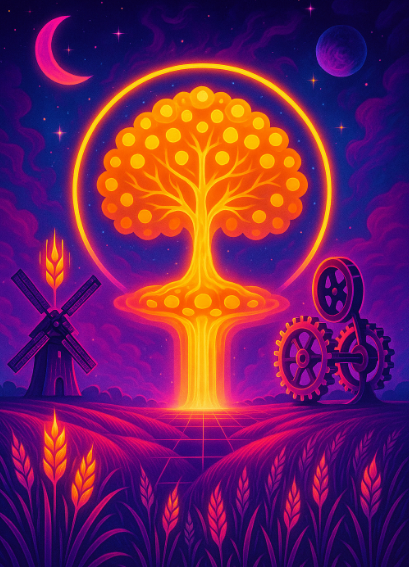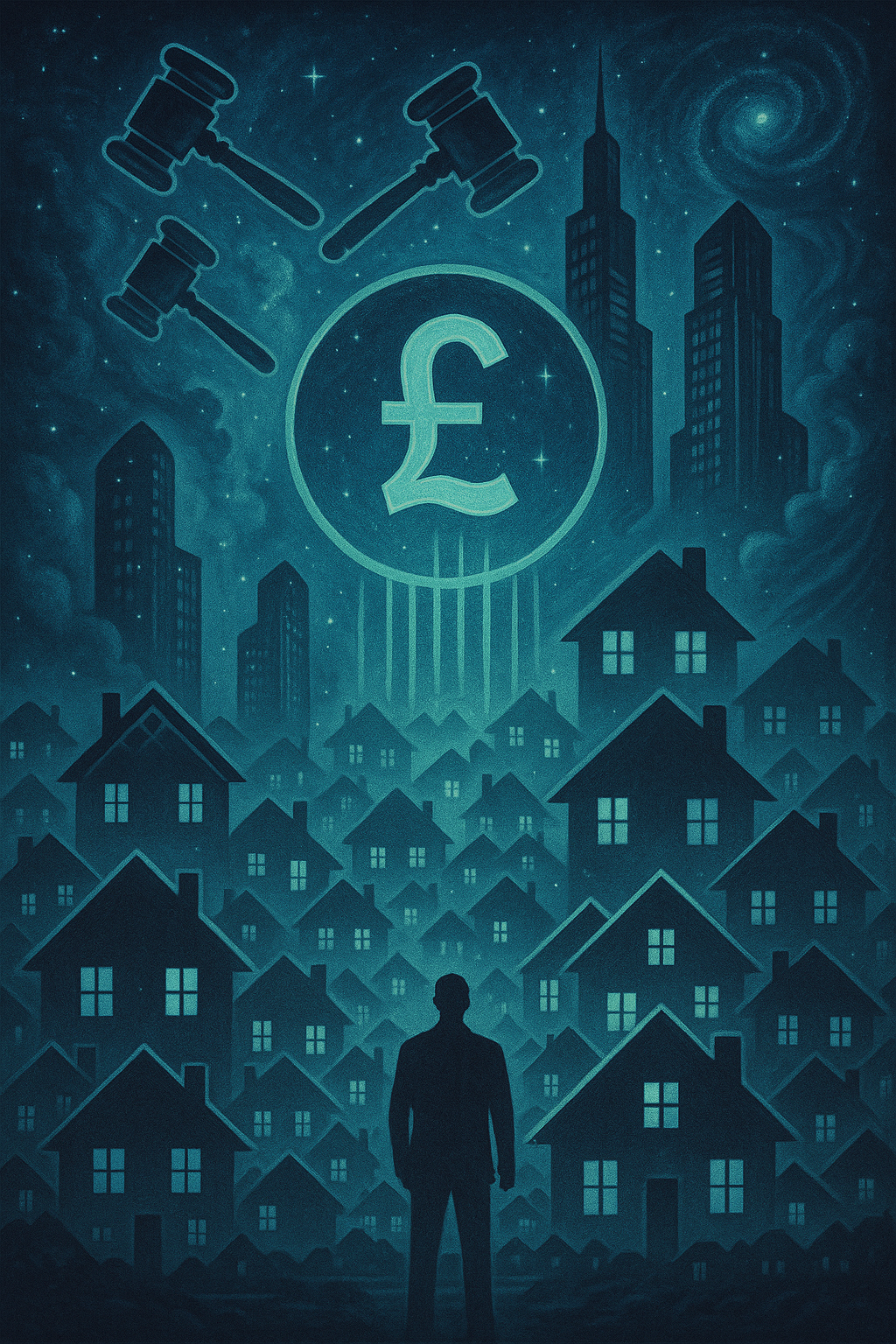Utopia’s Plurality: Subjective Ideals and the Foundations of Order
Popular articles
Utopia is no monolith; it is a mirror, reflecting the desires of the beholder. One man’s paradise—fields of leisure, unburdened by toil—is another’s purgatory, a wasteland stripped of purpose. This variance is not a quirk but a profound truth, etched across philosophy and history, and its recognition is essential to the crafting of any society that aspires to civility and function. The dream of a perfect order has animated thinkers from Plato to Marx, yet each vision diverges, shaped by the individual’s lens. To govern is to reconcile these differences, not to impose a singular ideal; the structures and rulings that endure emerge from this tension, not its erasure. This essay explores the subjectivity of utopia, its roots in intellectual and historical currents, and its implications for a collective life that works.
Philosophy lays bare the fracture. Plato’s Republic envisions a utopia of hierarchy—philosopher-kings aloft, guardians and laborers below, a rigid harmony born of reason’s triumph. It is a crystalline order, austere and absolute, yet to the artisan craving liberty, it chafes like chains. Aristotle, less enamored of such purity, counters with a polity of balance—virtue over dogma, the mean over the extreme—where fulfillment lies in civic jostle, not decreed perfection. His utopia breathes; Plato’s suffocates. Fast forward to Locke, whose Eden is property and consent, a commonwealth of free men tilling their plots—yet to Rousseau, this is dystopia, a cage of greed masking natural equality. Each mind conjures its ideal; each reveals its limit. Utopia is not universal—it is personal, and therein lies its potency.
History amplifies this discord. Thomas More’s Utopia (1516) sketches an island of communal plenty—no gold, no want, all shared under a benevolent yoke. It gleams with humanist hope, but to the merchant of Tudor London, it’s a nightmare of lost ambition, a leveling that kills trade’s pulse. The Puritans of 17th-century New England sought their own—a “city upon a hill,” godly and austere, scourged of sin—yet to the native tribes or the freethinker, it was a theocratic vise, not salvation. The French Revolution birthed utopias aplenty: Robespierre’s republic of virtue, pure and pitiless, clashed with the Girondins’ looser dream of federated liberty, both drowned in blood when visions collided. History’s lesson is stark: one’s utopia is another’s exile, and the clash shapes the world more than the dream.
This subjectivity is not a flaw—it is a condition. Hobbes saw utopia in the Leviathan, a sovereign fist to crush chaos; without it, life is “nasty, brutish, and short.” Yet to Mill, such control is anathema—his ideal rests on liberty, the individual’s right to flourish unyoked, a society of eccentrics thriving in debate. The gulf is unbridgeable: security versus freedom, order versus flux. Even Marx’s classless endgame—labor’s fruits for all—falters against Nietzsche’s scorn, who’d rather a world of striving Übermenschen than a herd of equals. Utopia’s essence is its plurality; it bends to the eye that sees it, and no single frame holds. To ignore this is to court delusion; to grasp it is to unlock governance.
Why does this matter? Because rulings and structures—the bones of civilization—must stand on this uneven ground. A society that presumes one utopia fits all collapses under its own weight. Sparta’s martial ideal, all iron and discipline, bred warriors but broke when peace demanded trade. The Soviet experiment, chasing Marx’s vision, forged equality at gunpoint—yet millions starved or fled, their utopias crushed under collectivization’s boot. The flaw was singular imposition: a state blind to the farmer’s dream of his plot, the poet’s need for solitude, the trader’s hunger for risk. Function demands flexibility—structures that bend, not break, under the strain of competing ideals.
The philosophical thread offers a guide. Kant’s categorical imperative—act as if your maxim were universal—hints at a utopia of mutual respect, yet even he knew wills diverge; his peace is another’s boredom. Rawls’ veil of ignorance proposes justice as fairness, a system blind to bias—but fairness to the ascetic is privation to the hedonist. These are not solutions but diagnostics: utopia’s variance forces a reckoning. A civilized order cannot dictate paradise; it must broker it, crafting laws and institutions that house difference without dissolving into chaos. The Magna Carta, crude as it was, worked not by perfecting a vision but by balancing barons and kings—function over fantasy.
History’s successes bear this out. The Roman Republic, for all its flaws, thrived on contention—patricians and plebs, consuls and tribunes, each with their utopia, jostling in the Forum. It fell when Caesar’s singular dream drowned the rest. Contrast this with the Venetian Republic, a millennium of stability not from one ideal but from many—merchants, nobles, guilds, each voice tempered by the others. Civilization holds when structures channel utopia’s plurality, not when they crown a victor. The alternative is rupture: Athens’ democracy died chasing Pericles’ glory, not its citizens’ chorus.
The imperative is clear: utopia’s subjectivity is not a puzzle to solve but a reality to navigate. One person’s Eden—say, a quiet commune—grates as another’s hell, a cell of dull conformity. This variance is the pulse of human life, and to deny it is to doom the collective. Rulings must reflect this—laws that shield expression, not one creed; institutions that mediate, not mandate. Culture forms from these myriad dreams, and its health hinges on their freedom to clash and coexist. Individuals bear no burden to align their utopias—only to voice them, and to live with the tension. A functional society emerges not from a shared heaven but from a shared table, where all may sit.
Subscribe to unlock premium content
Sed at tellus, pharetra lacus, aenean risus non nisl ultricies commodo diam aliquet arcu enim eu leo porttitor habitasse adipiscing porttitor varius ultricies facilisis viverra lacus neque.
The Great Wealth Generation Act 1.0

The Great Democracy Restoration Act

UK Nutrition Act 1.0

The Great Wealth Generation Act 1.0

The Great Democracy Restoration Act

The Great Wealth Generation Act 1.0







